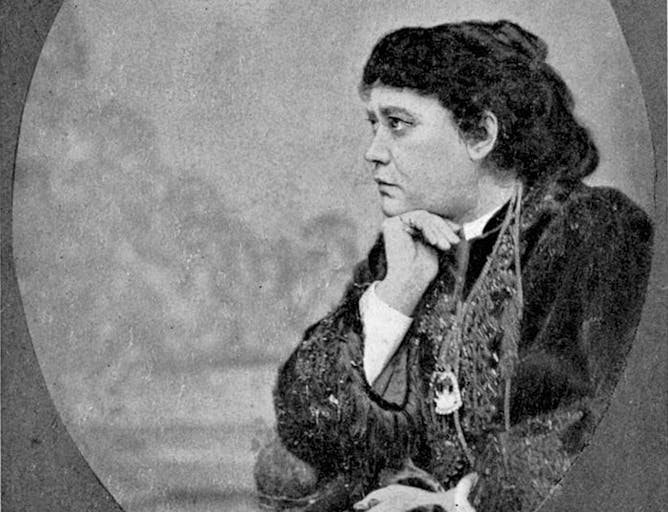|
Helena Blavatsky lived at a time when many Americans and Europeans were questioning their religious beliefs, hungry for new ideas and perspectives. Some looked to other cultures for insight; others abandoned ideas of divinity entirely, or invented their own faith traditions.
Sound familiar? The Victorian era was as full of spiritual searching and experimentation as our own. The Russian-born Blavatsky – who died in London 132 years ago this week, now commemorated as White Lotus Day – spent years traveling and pouring her ideas into writing before co-founding the Theosophical Society. Aiming to create a universal brotherhood of humanity, the group claimed it was inspired by spiritual masters in the Himalayas. Its descriptions of Hinduism and Buddhism were often romanticized and inaccurate. Yet it inspired a surge of Western interest in Asian religions, popularizing concepts like karma and reincarnation.
Cultural historian Marina Alexandrova traces Blavatsky’s eclectic, esoteric life – and the ways her complicated legacy is still felt in our own age of restless spiritual seeking.
This week we also liked articles about peanut butter, the cultivation of mindfulness and self-compassion and Don Lemon and Tucker Carlson.
|

Helena Petrovna Blavatsky, photographed in New York circa 1874.
Universal Images Group via Getty Images
Marina Alexandrova, The University of Texas at Austin
Theosophy and its founders had an outsize impact on Americans’ ideas about spirituality and Asian religions.
|

Security guards separate guests on an episode of ‘The Jerry Springer Show’ titled ‘I am pregnant by my half-brother.’
Ralf-Finn Hestoft/Corbis via Getty Images
Matthew Jordan, Penn State
As ‘The Jerry Springer Show’ climbed the ratings ladder, the censorship bleep, which masked the slew of insults lobbed by warring guests, became a star of the show.
|

Catching a ride for free?
Hulton-Deutsch Collection/CORBIS/Corbis via Getty Images
Tim Juvshik, Clemson University
As a society, everyone is motivated to regulate AI development. For individual companies, though, the opposite is true.
|
|
|
-
Ted Heindel, Iowa State University
A mechanical engineer explains why you need to go with the flow. The TSA pronouncement that peanut butter is a liquid is scientifically sound.
-
Jay L. Zagorsky, Boston University
Prom can be very expensive, but prices for clothes, photographers and other traditional gear haven’t climbed as much as everything else.
-
Rachel Goldsmith Turow, Seattle University
Many studies show that consistent meditation practice lowers depression, anxiety and self-criticism.
|
|
|
|